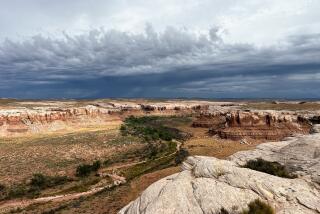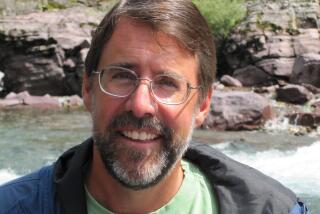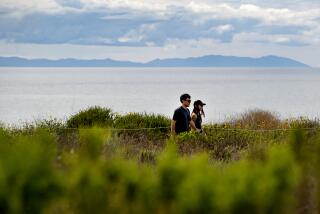Readers React: In defense of John Muir
To the editor: The article on the relevance of John Muir’s legacy featured academics who cast doubt on his advocacy for wild-land preservation and say a better way to serve the public would be to create more urban parks. (“John Muir’s legacy questioned as centennial of his death nears,” Nov. 13)
There is no quarrel among park and wilderness advocates about the need and desirability for creating more urban parks. Critics who proclaim that Muir’s vision for large parklands is dated and argue for the creation of more urban parks are setting up a straw man. Urban parks are great for getting a large number of people acquainted with nature. They provide needed recreation, open space and opportunities for the study of nature.
However, such places are not large enough if our goal is to protect nature’s diversity. If our goal is preserving biodiversity and ecological function, then large, protected landscapes such as Yosemite National Park and other wild-land preserves that Muir championed work better than any other mechanism.
George Wuerthner, Bend, Ore.
..
To the editor: The most recent book by Wuerthner, who has written two on Yosemite, is “Keeping the Wild: Against the Domestication of the Earth.”
Anyone who has experienced the peace of the High Sierra, the awe induced by visiting Yosemite or the thrill of climbing Mt. Rainier and spending the night at Camp Muir would beg to differ with the suggestion that Muir’s vision is outdated.
Young, old, rich, poor, tourists and locals alike can and do enjoy the wilderness together. Arguing that Muir’s vision is “rooted in economic privilege” is ludicrous. More insulting is the notion that Muir’s legacy is geared toward “a certain demographic — older and white — and that’s a problem.”
As an older, white, Anglo-Saxon Protestant who grew up hiking the trails created by Muir, to say that my view is outdated and inconsistent with the needs of modern communities is offensive. More urban parks are fine; just don’t call those of us who love the national parks that are Muir’s legacy elitists.
Linda Candler, Marina del Rey
..
To the editor: Time was, I would be occasionally annoyed by Sierra Club policies, which threatened my personal enjoyment of the outdoors. But I learned to alter my plans and still had a good time visiting wilderness areas.
Now it appears that the legacy left to us by Muir is being questioned thanks to political correctness. I hope there is still a bit of majesty left for my grandchildren.
David Sievers, Encino
..
To the editor: Was Muir perfect? No. Was he essential? Absolutely.
History is not a fully packed suitcase; to add something, one does not need to take something out. Criticizing Muir for being a man of his time is as fatuous as criticizing Newton for not developing string theory.
Without Muir’s vision, his critics would have to get “real” jobs, like monitoring the sluices on the Great Yosemite Dam or being roughnecks on the Sequoia/Kings Canyon Fracking Project.
I’m not a prognosticator, but I can safely say that, long after Muir’s critics in academia have been forgotten, the name and work of the farseeing immigrant from Scotland will still be revered.
Kevin Cavanaugh, Costa Mesa
Follow the Opinion section on Twitter @latimesopinion
More to Read
A cure for the common opinion
Get thought-provoking perspectives with our weekly newsletter.
You may occasionally receive promotional content from the Los Angeles Times.










